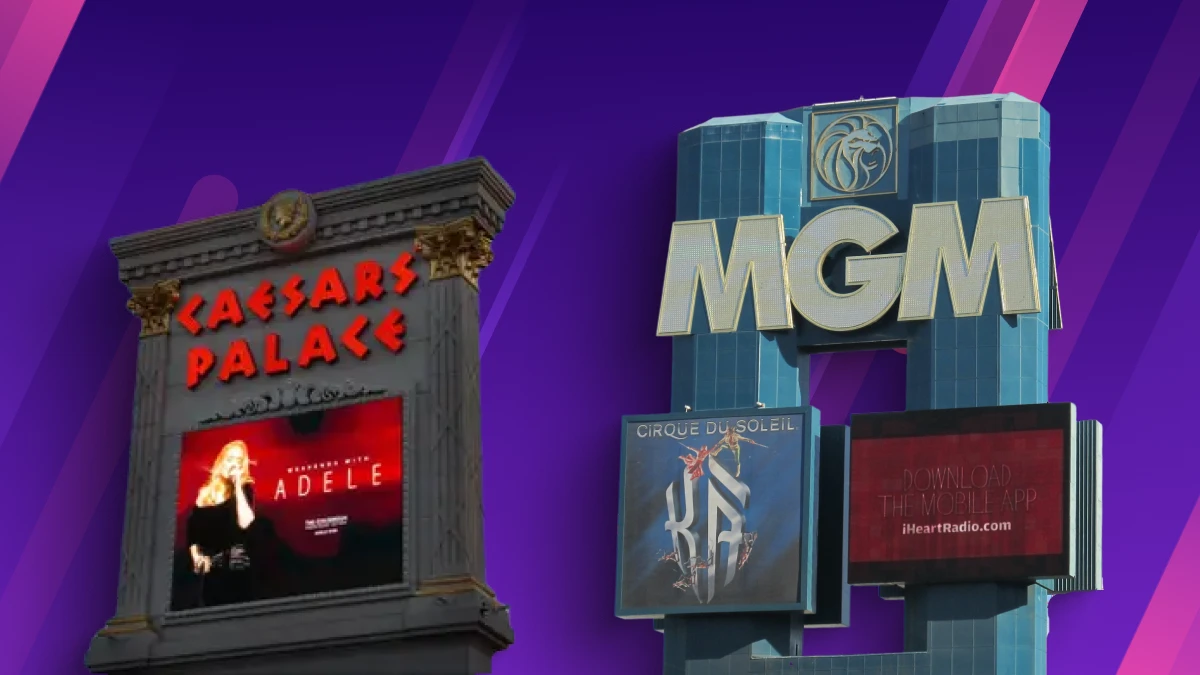MGM and Caesars Could Gain $300M from ‘One Big Beautiful Bill’

1.0
Default
Major gaming companies such as Caesars and MGM see broad potential to earn millions in revenue from the controversial One Big Beautiful Bill, saying the bill could give them upwards of $300 million in revenue in their Las Vegas operations.
Legislation that sent shockwaves through the gambling community may prove to be a financial boon for two of the biggest names on the Las Vegas Strip. MGM Resorts and Caesars Entertainment each expect to see more than $100 million in tax-related benefits from the recently passed "One Big Beautiful Bill" or OBBB, despite mounting backlash from bettors and smaller industry stakeholders.
The bill, which includes controversial changes to gambling loss deductions, has drawn fire from professional gamblers and industry insiders - but casino executives say it could ultimately strengthen their bottom lines.
Major operators project massive gains
In their latest earnings calls, top executives at Caesars and MGM revealed that the OBBB will likely slash their projected tax liabilities. Caesars Chief Executive Officer Tom Reeg stated the legislation could result in $80 to $100 million less in cash taxes for the company than previously expected. That tax relief, he said, could help offset recent weak financial quarters in Las Vegas.
Meanwhile, MGM's Chief Financial Officer, Jonathan Halkyard, echoed that optimism, describing a $200 million swing - from a projected $100 million liability to a $100 million refund. "It's a pretty meaningful change," he said. Together, the two casino giants could reap as much as $300 million in combined benefits under the new legislation.
Gamblers sound the alarm over deduction cuts
While major operators cheer the bill's financial perks, the wider gambling community remains unsettled by one provision in particular: a change that reduces the deduction on gambling losses from 100% to 90%, effective January 1, 2026.
Under current law, gamblers who win $100,000 and lose an equal amount can deduct their full losses, eliminating any tax liability. Under the OBBB, those same players would only be allowed to deduct $90,000 - forcing them to pay taxes on a phantom $10,000 profit.
Sports bettors, professional poker players, and other high-stakes gamblers voiced outrage on social media, warning that the change could drive players away from regulated casinos toward underground or untaxed alternatives. Though the change affects a small subset of players who itemize their tax returns, stakeholders warn it may still damage the legal gambling ecosystem.
Other industry-friendly provisions applauded
Despite the uproar over deductions, the American Gaming Association has publicly supported many aspects of the OBBB. Chief among them is the elimination of federal income tax on tips - a benefit for many of the one million casino workers nationwide. Another major win: raising the tax reporting threshold for slot machine winnings from $1,200 to $2,000, a long-sought industry goal.
However, gaming analysts remain unsure how the law will impact reporting processes. MGM Chief Executive Officer Bill Hornbuckle said he believes the slot reporting threshold has, in fact, increased under the new law, though more clarity is needed.
Still, Hornbuckle acknowledged the concerns surrounding the deduction cap. "Obviously, the tax deduction limitation is impactful," he said, especially for VIP and professional players who frequent multiple properties.
Repeal efforts gaining momentum
In response to mounting pressure, casino leaders have joined forces with lawmakers in a bipartisan push to repeal the deduction change before it takes effect. Nevada Representative Dina Titus introduced legislation to restore the 100% deduction days after the OBBB was passed. Ten co-sponsors have since signed on. Republican Rep. Andy Barr of Kentucky introduced a parallel bill shortly after.
Hornbuckle, Reeg, and Wynn Resorts Chief Executive Officer Craig Billings recently met with House Ways and Means Chair Jason Smith in Las Vegas to advocate for reversal. Following that meeting, Smith expressed his willingness to explore restoring the full deduction during a public committee hearing.
The One Big Beautiful Bill remains a double-edged sword for the gambling industry. But while top-tier casino operators like Caesars and MGM anticipate major financial gains, fears about the long-term impact on individual gamblers and the legal gaming market persist.




















